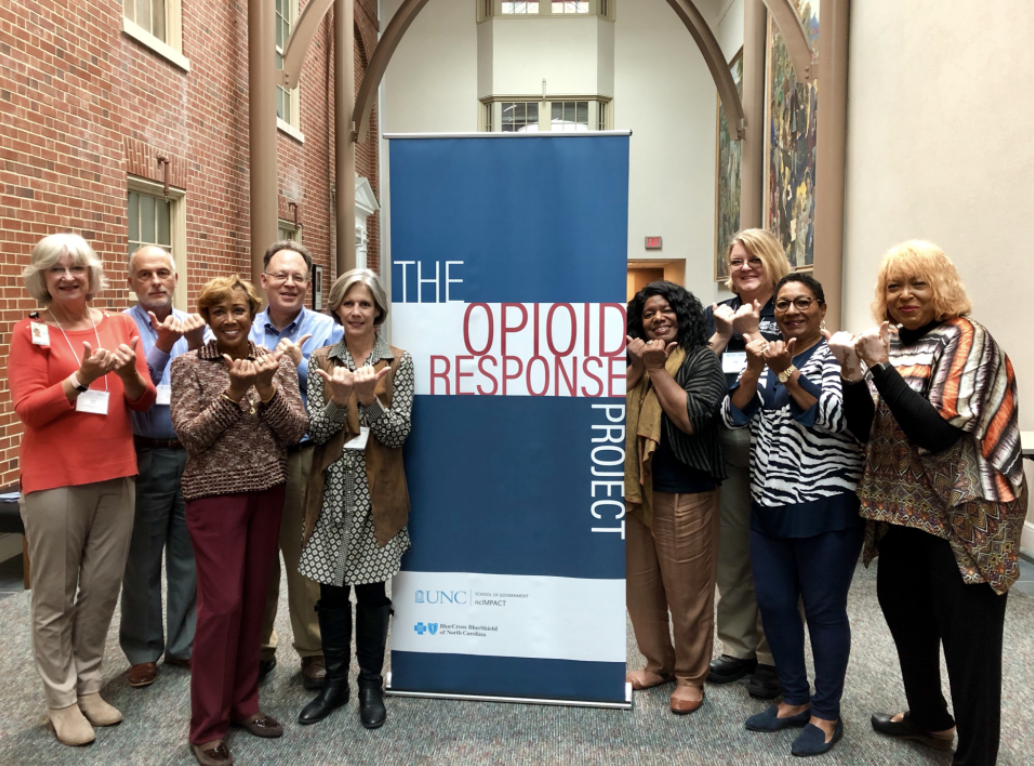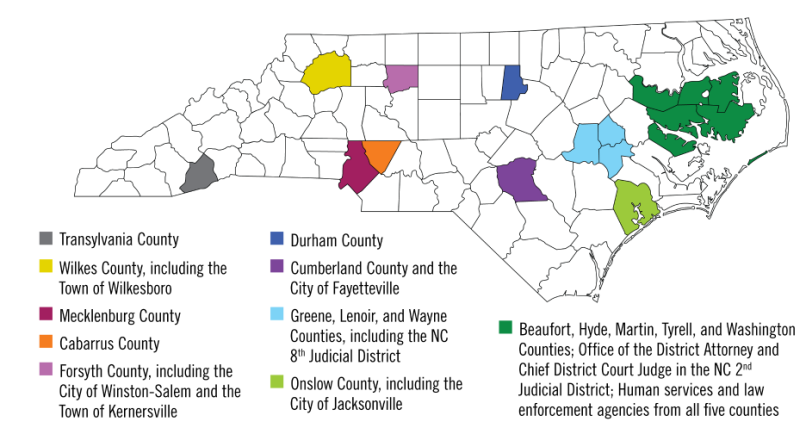Opioid Response Project Team Spotlight: Durham County
Dr. Wanda Boone describes the Opioid Response Project experience as extremely rewarding, not only because of shared information at forums, but because of the dialogue that happened during presentations and with speakers. “Presenters have been knowledgeable, respectful and open to hearing feedback,” said Boone. “The School of Government took time to think about the balance of speakers between novices and experts in the room, and to me, that was the most wonderful aspect of the project.”

Co-author: Mary Parry
The county-wide task force Durham Joins Together (DJT) to Save Lives formed after a 2017 community forum on the issue of opioid overdose. The forum brought together 250 officials and community leaders, including participants from the health department. Led by co-chairs Commissioner Wendy Jacobs and Dr. Wanda Boone, DJT works to eliminate and prevent substance misuse through education, peer support, and treatment. Their early organizing work contributed to their team involvement with the UNC School of Government’s Opioid Response Project.
DJT leverages different knowledge, skills, and experiences from across the county, working together in committees focused on mental health and treatment, prevention and education, data, and policy. Collaboration helps the team make a targeted impact and avoid duplicating efforts. “Learning how not to work in silos is really, really important,” said Dr. Boone. “That has been an important take-away from our work as a task force and through the Opioid Response Project.”
Dr. Boone co-chairs the Prevention and Education Committee with DJT. She offers 30 years of experience in prevention and a wealth of knowledge as founder of Together for Resilient Youth (T.R.Y). Since 2003, T.R.Y. has been very active in substance use prevention. Dr. Boone’s participation in the state’s opioid overdose prevention plan was instrumental in helping to bring forward strategies and data measurements useful in creating a roadmap for prevention and education. “Durham has already seen a decrease in substance use,” said Boone. “We’re showing that this has been a successful coalition.”
The Mental Health and Treatment committee encouraged a team focus on the opportunity to offer support for people released from the hospital emergency department and help individuals succeed after overdose treatment. Individuals meet with peer support specialists and engage in treatment if they are ready for it. The team also succeeded in making Medication Assisted Treatment available in jails and ensuring incarcerated people are given information about Naloxone and Naloxone kits upon release. “The most dangerous time for overdose is within two weeks after leaving jail,” said Dr. Boone.
Finding information relevant to their county’s unique patient demographics presented a challenge for the DJT team. Durham is the only NC county with a higher rate of overdose in a minority population. “We have had to learn how to find that data and help the county understand it,” said Dr. Boone. “We have worked to create messaging that resonates with black people, to help educate about naloxone, harm reduction, and removing stigma.”
Dr. Boone describes the Opioid Response Project experience as extremely rewarding, not only because of shared information at forums, but because of the dialogue that happened during presentations and with speakers. “Presenters have been knowledgeable, respectful and open to hearing feedback,” said Boone. “The School of Government took time to think about the balance of speakers between novices and experts in the room, and to me, that was the most wonderful aspect of the project.”
Being able to bring different members of Durham’s sizeable team to learn and share at forums was a big benefit to the group. With four committees and so many team members from across the county, being able to bring a variety of team members together created opportunities to sync up their overall work and provide space together to get work done.
The team’s ability to access grant funding was important, in addition to the team building and collaboration. “The secret sauce to coalitions is bringing together different talents, networks, and strengths – all of that on a budget,” said Dr. Boone. “Human capital is just as important as financial capital.”



